hello.
i moved to new york city about four years ago, and it was the first place that ever felt like home. the city moved, and i moved with it. there was something about waking up the city that made me want to pay attention. everything felt alive, loud, specific, unfiltered. i noticed everything. and for the first time, that didn’t feel like a burden. it felt like a kind of belonging. like being tuned in instead of overwhelmed. i started to understand that the world could be shaped, curated, lived in like art. not as performance, but as a form of care and devotion.
aestheticism is not decoration for the sake of ego, nor a distraction from a life you’re trying to escape. it is life, or at least one of the few things that makes life bearable. to care about aesthetics is not to be shallow. it is an act of attention, a way of saying that in a world so often indifferent and unkind, you are still looking closely. and you are still capable of being moved.
recently, when i visited my brother in los angeles, he made an observation that i’ve been thinking about ever since. he said, “aesthetic is one of the first things you notice about a person, place, or thing.” and he’s right. i do. it is the first thing, not because i’m trying to be judgmental or pretentious, but because it’s how i orient myself to the world. it’s how i know if something is safe, or nourishing, or alive. it’s not about looks. it’s about feeling.
i have always been the kind of person who is shaped by her surroundings. i cannot write well under fluorescent lighting. i cannot rest in a room with blank walls. i need music, or silence, or something humming softly in the background. i need soft blankets and chipped teacups and books stacked on the floor. i notice fonts and i’m devastated by bad design (what does that even mean?). i light candles before i can focus. i spray perfume even if no one will smell it but me. i cannot separate thought from atmosphere.
this sensitivity has been misunderstood for most of my life. people treat it like a quirk. like i’m just being dramatic or fussy. but i think, more and more, that it is something sacred. something instinctual and protective. there is a philosophy behind it and a psychology, too. aesthetic experience is not about what something looks like. it is about how something opens you and how it holds you and stirs memory and emotion without demanding that you explain it. that kind of attention is a form of devotion, and in a world addicted to speed, flatness, and efficiency, devotion feels radical.
oscar wilde understood this best. he believed in beauty as a kind of resistance. not as ornament, but as necessity. he saw aestheticism as a rebellion against moral rigidity, against utilitarianism, and against a society obsessed with order and function. he wrote in defense of pleasure, of art for art’s sake, of decadence as a higher form of truth. wilde was not shallow. he was deliberate. he believed that the pursuit of beauty was a deeply serious thing. not because it was tidy or virtuous, but because it revealed something about what it means to be human.
what wilde understood, and what so many still fail to grasp, is that beauty is not a distraction from meaning. it is meaning. or at least one of the ways we come closest to it. when he argued that life should imitate art, he was not being flippant. he was proposing something radical. in a world that insisted on art serving a moral or practical purpose, he insisted on its freedom. he believed in beauty for its own sake, and that belief was a form of defiance.
in the picture of dorian gray, he writes that all art is quite useless. that line has been misunderstood again and again. he was not dismissing art. he was exalting it. art, he believed, is valuable precisely because it is beyond function. like love, or longing, or the scent of something that makes you ache, its purpose is not to serve, but to stir. to awaken something in the soul that logic cannot reach.
this was especially provocative in victorian england, where art, dress, architecture, and even conversation were expected to align with restraint. everything had to be useful, upright, respectable. wilde refused that framework. he chose beauty, not as escape, but as declaration. he surrounded himself with color, language, and music because he believed beauty made life not just bearable, but expressive. it gave form to what could not be said out loud.
his aestheticism was never about polish or perfection. it was about atmosphere. the emotional charge of surfaces. he understood that a well-composed room or a single bloom in a glass of water could shift your sense of reality. he knew that a velvet curtain or the curve of a handwritten letter could make someone feel more alive. those details mattered, because people mattered.
wilde’s life was an experiment in aesthetic living. he paid attention. he created beauty even when it cost him, and it did. his fall was brutal and he was punished not only for his sexuality, but for his refusal to conform and his unwillingness to make himself smaller. and yet what has endured is not the scandal, but the vision. the richness of his sentences and the way he insisted, again and again, that art is enough.
for wilde, beauty was not a luxury. it was a language and a way of saying, i am still here. i still feel. i still care about how the world looks and sounds and smells and sings. that, to me, is not shallow. it is a rare and necessary kind of courage.
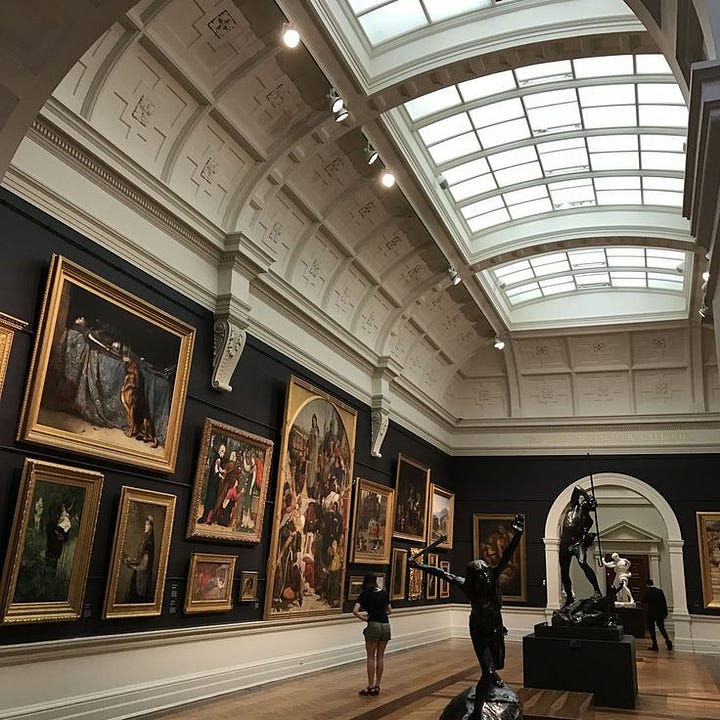
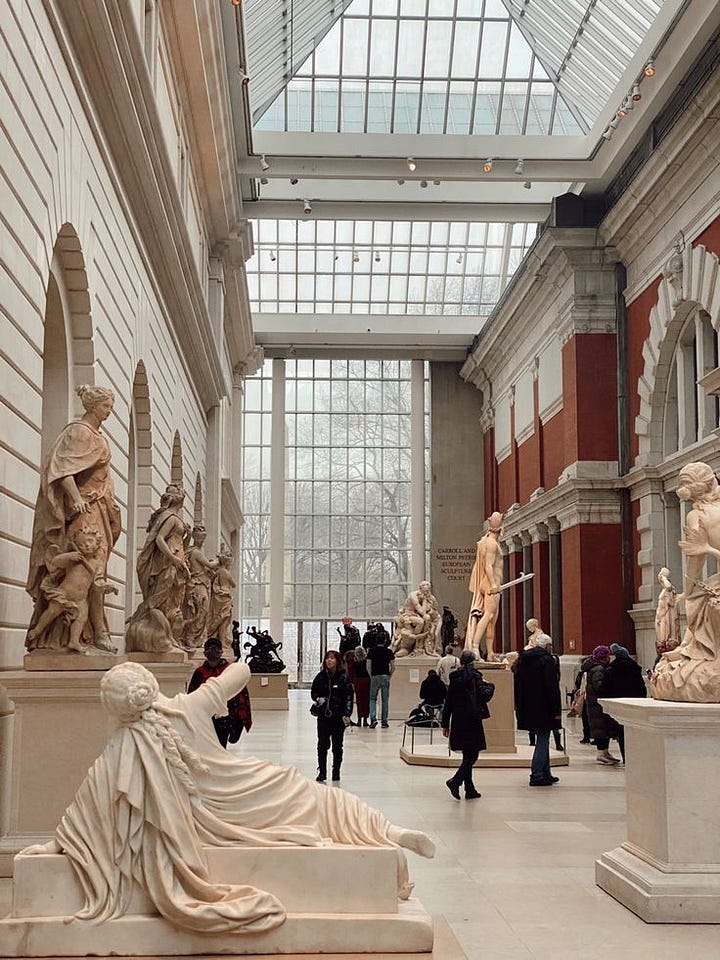
(this post is free, but if you enjoy this newsletter, consider becoming a paid subscriber and be part of a smaller circle where things feel a little softer, a little more personal, you’ll get early access to my youtube videos and a weekly media consumption roundup filled with articles, video essays, podcasts, and other references to make you smarter. i’d love to have you there)
baudelaire is another writer who showed that aestheticism was not about ignoring suffering, but about seeing it clearly. framing it. making meaning of it. he believed that beauty and pain were entangled, and that art was the only way to hold them both without flinching. his poems made space for contradiction and decay and desire that could not be moralized or purified. he didn’t seek to resolve the tension between pleasure and despair. he lived in it. and in doing so, he opened a door for others to do the same.
in les fleurs du mal, he took what others found shameful and made it luminous. he wrote of women, opium, sex, death, and perfume thick in the air. he wrote like someone who had tasted both ecstasy and disgust, and refused to separate the two. his aesthetic was not one of detachment or perfection, but of intoxication. he wanted art to bruise, to stain, to seduce. he wanted it to remind us that we are not pure, and never were.
“l’un allumait sa bougie à la flamme de l’autre,
comme un parfum s’exhale d’un corps chaleureux.”
“one would light her candle at the other’s flame,
just as perfume rises from a warm body.”
what makes baudelaire essential is that he refused to idealize. he did not believe in sanitizing emotion. he believed in looking directly at what was most human. our contradictions, longings, ugliness, beauty, and writing from that place. he showed that aestheticism could be gritty and erotic and sacred all at once. and he reminded us that the world is not always beautiful, but that we are still allowed to search for beauty inside it.
baudelaire reminded us that beauty can be found in places we are taught to avoid. in smoke. in ruin. in hunger. in grief. and perhaps that is why i return so often to the smallest, strangest details of the world. not the grand or obvious gestures of beauty, but the subtle ones. the sensory ones and the things that linger quietly and carry meaning long after they’re gone.
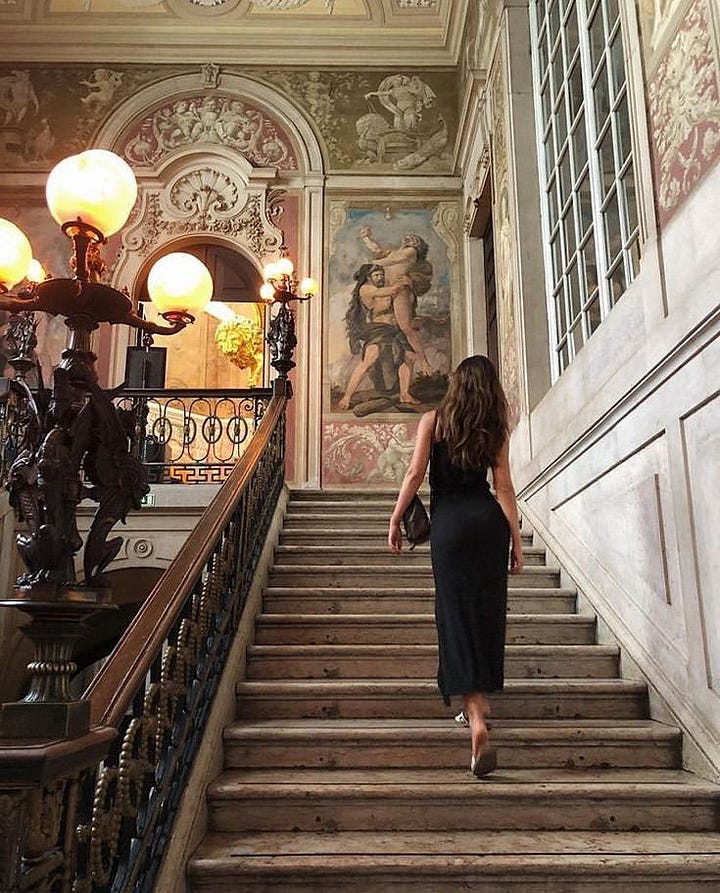
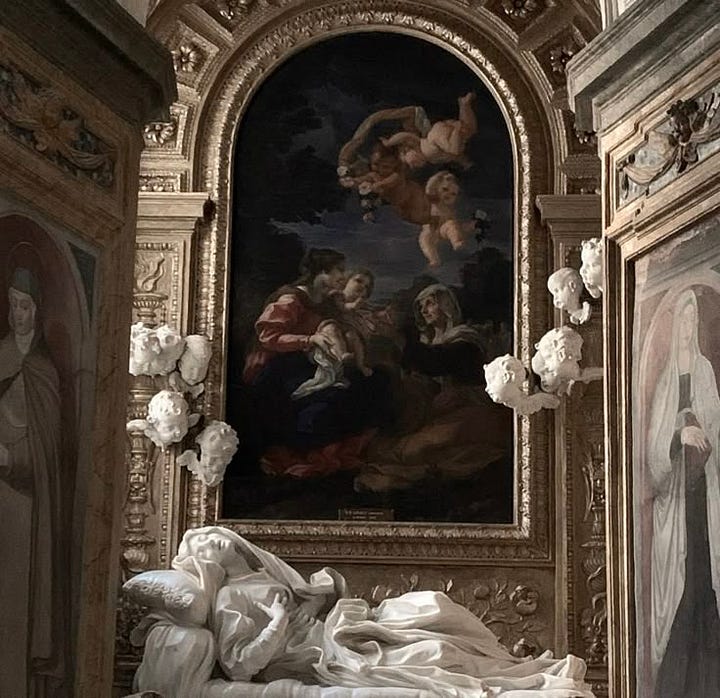
i think often about scent. how unnecessary it is, at least in the practical sense. how invisible and yet all-consuming. perfume has no clear function, no measurable output, and yet it changes everything. it alters the mood of a room, it lingers in the air long after you’ve left, it stays with people in ways you’ll never be able to trace. scent is one of the few things that bypasses language entirely and speaks directly to memory. it does not ask to be understood, it just appears, stirs, dissolves. and in that way, it mirrors everything i believe about aestheticism. that beauty is not decoration. it is presence. not surface, but atmosphere. not performance, but intimacy.
“il est de forts parfums pour qui toute matière
est poreuse. on dirait qu’ils pénètrent le verre.”
“there are strong perfumes for which all matter
is porous. it seems they pass through glass.”
i feel the same about handwriting. the slowness of it. the particularity. the way each letter holds the rhythm of a person’s thinking. it is physical, imperfect, deeply human. in a world that prizes automation and speed, handwriting is almost embarrassingly vulnerable. there is no predictive text, no clean interface. just the body moving, pausing, reaching for words in real time. and still, nothing feels more personal than a handwritten note. nothing else makes thought feel so tangible. i think we are losing something profound in letting that disappear.
i think about buildings. how they absorb time and how a space holds on to the people who once passed through it, the sounds that once echoed inside its walls. i have stood in centuries-old cathedrals and felt small in a way that made me more, not less. i have walked through abandoned homes and felt the ache of everything left behind. certain spaces make you quiet, not because they are sacred in any formal sense, but because they remind you that something came before you. something with weight and story and shape. to protect these spaces is not sentimentality. it is a way of respecting the emotional architecture of the world.
aestheticism, to me, has nothing to do with superficiality. it is not about taste. it is not about appearing interesting or refined or particular. it is about the impulse to treat the world gently and notice the details that so many people move too quickly to see. it is a way of resisting numbness and refusing to let life become flat or standardized or efficient to the point of erasure. to care about beauty is to care about perception itself. it is to say, again and again, that what we feel matters.
and when i say beauty, i do not mean luxury. i do not mean perfection. i mean the texture of existence. a chipped plate you can’t throw away. a song you play over and over, even if it makes you cry. the way light hits the floor at four in the afternoon. the way perfume settles into skin. the curve of a staircase. the warmth of a worn coat. these things do not save the world. but they have, at times, saved me.
to love beauty in a time like this is not frivolous. it is a form of fidelity. it is the decision to remain open, to keep feeling, even when there is so much incentive to shut down. it is not a distraction from life, it’s a way back into it.
and maybe that’s why i notice beauty first. not because it’s all that matters, but because it’s often the only thing that makes me stop and remember that i’m here.
and if that makes me someone who notices beauty first, so be it. i would rather notice too much than not at all.
for those who still believe in beauty
i wanted to share a few books that feel like companions to everything i’ve written here. some are philosophical, some are poetic, some are messy and alive in the way beautiful things often are. they all speak to the quiet urgency of aesthetic life and noticing, caring, and arranging your world with intention, even when it feels like no one else is looking. these books have reminded me that beauty is not something we chase for approval, but something we recognize as vital. like breath. like memory.
they are not about luxury. they are about attention and feeling and the quiet rebellion of still believing that art, space, and softness matter.
the picture of dorian gray by oscar wilde
not just a novel, but a manifesto. a study in the worship of beauty and its slow undoing. every page is lined with wit, cruelty, longing, and a belief that aesthetic experience is not frivolous, but central to being human. this is wilde at his most serious, even when he pretends not to be.
les fleurs du mal by charles baudelaire
poems that smell like smoke, silk, and old cities. this collection is everything people try to sanitize out of art. erotic, decaying, melancholy, excessive. baudelaire finds beauty in ruin and refuses to separate pain from pleasure. it is as much a spiritual text as it is a sensory one.
the painter of modern life and other essays by charles baudelaire
where he outlines the flâneur, praises cosmetics, and defends beauty as a vital response to modernity. these essays offer a philosophy of surface that is anything but superficial. necessary reading for anyone who wants to understand how aesthetic attention can be both poetic and political.
the poetics of space by gaston bachelard
dreamy, philosophical, and strangely emotional. bachelard explores how homes—attics, staircases, corners, drawers. shape the way we dream, remember, and exist. not academic, but lyrical. the kind of book that makes you want to stay home and notice everything.
the architecture of happiness by alain de botton
a gentle, philosophical book on why buildings affect us so much, and what it means to live among walls that were designed to last. not too technical, but full of quiet insight. perfect if you’ve ever cried in an old church or felt healed by a well-designed room.
in praise of shadows by jun’ichirō tanizaki
a love letter to quiet interiors, flickering candlelight, and the soft decay of materials. tanizaki shows how beauty emerges from imperfection and how elegance can exist in silence. this book feels like sitting in a wooden room during a slow rain.
ways of seeing by john berger
a foundational text in art criticism, but written like a quiet act of rebellion. berger isn’t interested in what art is, but how we look at it, and how systems of power shape what we’re allowed to see. essential reading if you care about the politics and intimacy of perception.
against interpretation by susan sontag
especially the title essay. sontag argues for restoring sensuality to our experience of art. she resists the idea that everything must be decoded or justified. sometimes, she reminds us, it’s enough to feel something.
the passion by jeanette winterson
a lyrical, romantic novel set during the napoleonic wars, full of sensory writing and surreal longing. there’s snow, there’s gambling, there’s a woman who walks across water. it’s about obsession, beauty, and the thin line between magic and madness.
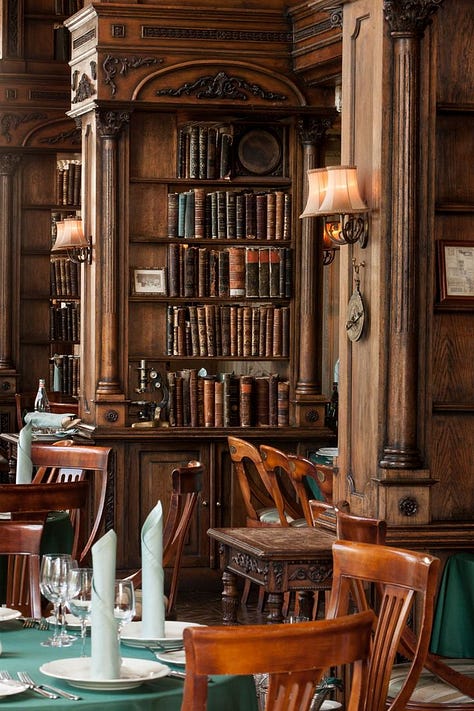
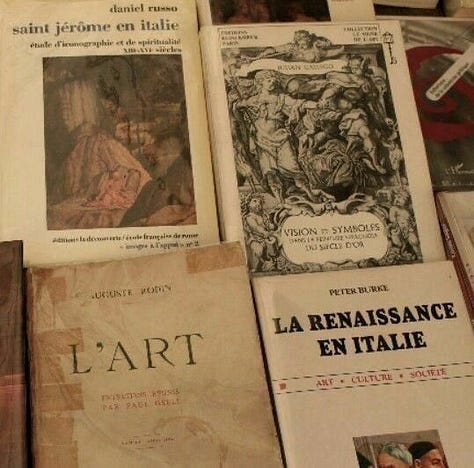
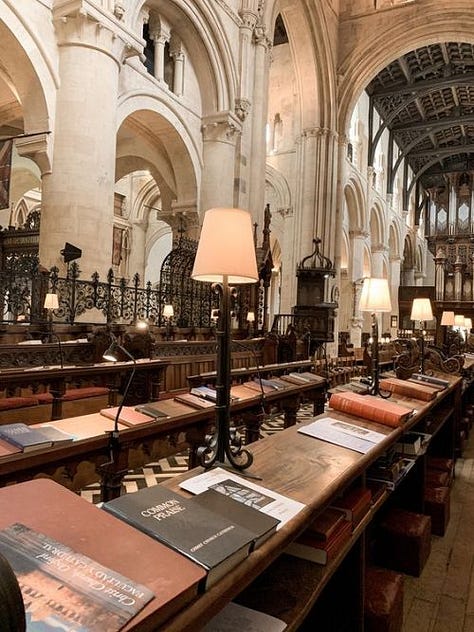
if books are how i think, then scent is how i feel. perfume is the most aesthetic art form i know. intimate, useless, invisible, and unforgettable. it doesn’t ask to be understood. it doesn’t explain itself. it lingers, shifts, haunts. like handwriting or architecture, it shapes the atmosphere you live inside.
these are perfumes that feel like poetry to me. not clean or easy, but heavy with memory and mood. they’re emotional, sometimes overwhelming, sometimes barely there. they smell like velvet, old stone, skin, grief. like something worth holding onto.
l’orpheline – serge lutens
dust, incense, ghostly. cold but not empty. like walking through a house that still remembers you, even if no one’s home.
relique d’amour – oriza l. legrand
wet stone, candlewax, aged wood. smells like the echo inside a monastery. a religious experience, but private. holy and strange.
portrait of a lady – frederic malle
she walks into the room and ruins you a little. rose, incense, and velvet lining. elegant and excessive. seductive without softness.
peau – arquiste
skin and memory. slightly salty, barely sweet. it doesn’t smell like perfume—it smells like someone you can’t stop remembering.
musc ravageur – frederic malle
heat, skin, spice. not polite, not subtle. like the aftermath of something you shouldn’t have done but will do again.
tobacco toscano – santa maria novella
smoke and sweetness. old books, leather chairs, and the ghost of a good scotch. masculine in the best way. quiet, serious, grounded.
iris silver mist – serge lutens
ethereal, rooty, almost untouchable. like cold air through silk curtains. strange and powdery and so beautiful it almost feels otherworldly.
if you’re curious about sampling you can use my link at scent split for a discount on all samples and full size bottles
okay, that’s all i have for you today.
if you’re not ready to become a paid subscriber and you have the capacity to leave a tip, that would be so appreciated.
i love you.
bye.
(follow ig, tiktok, youtube, pinterest and spotify for more)
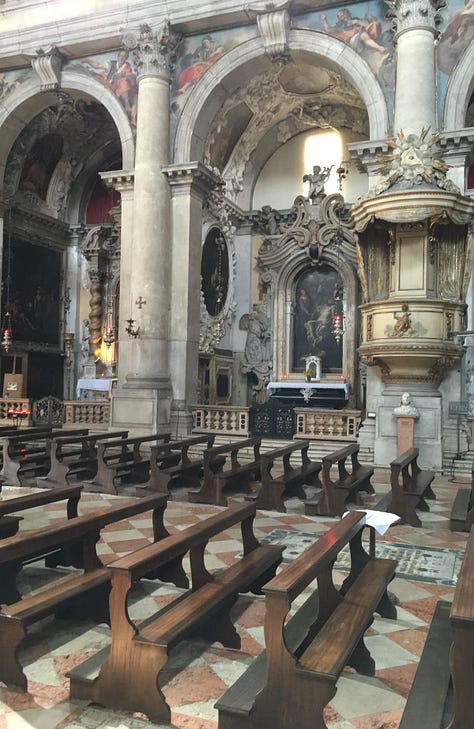
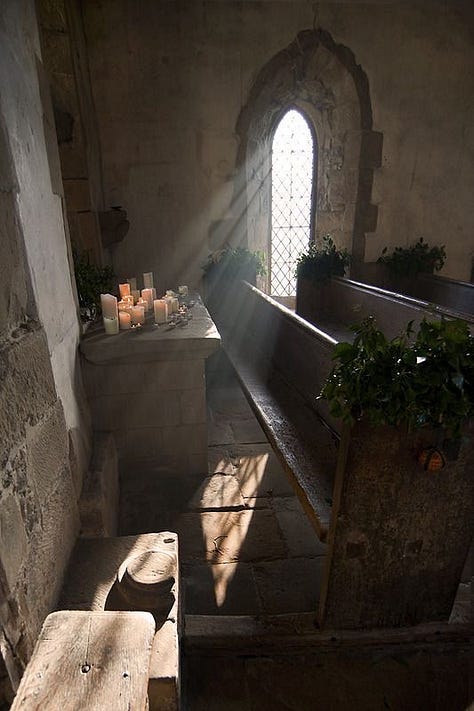
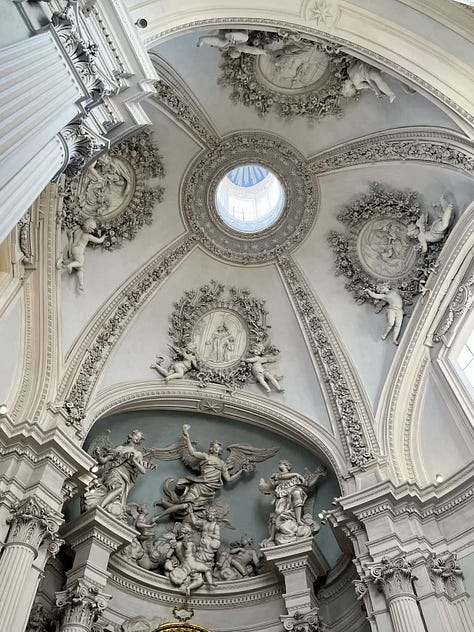




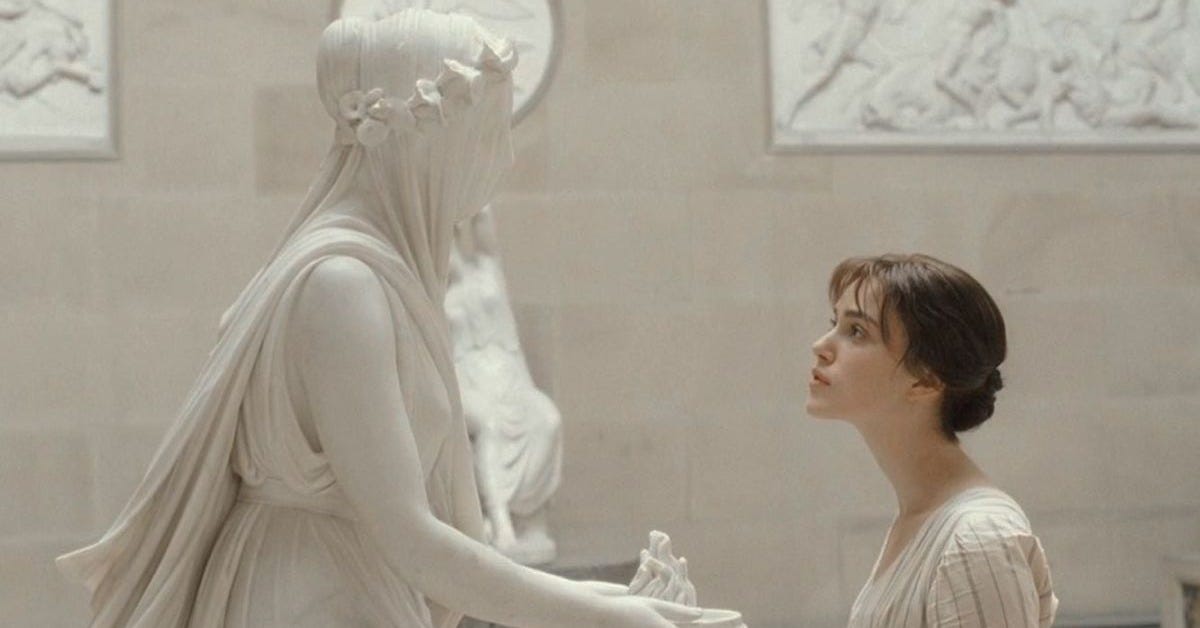
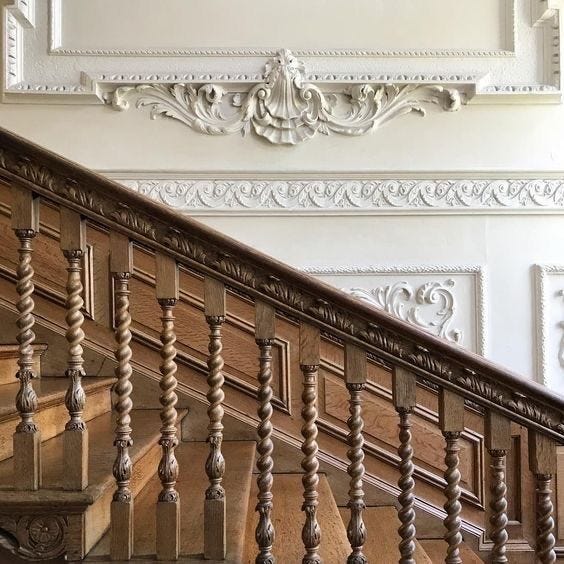
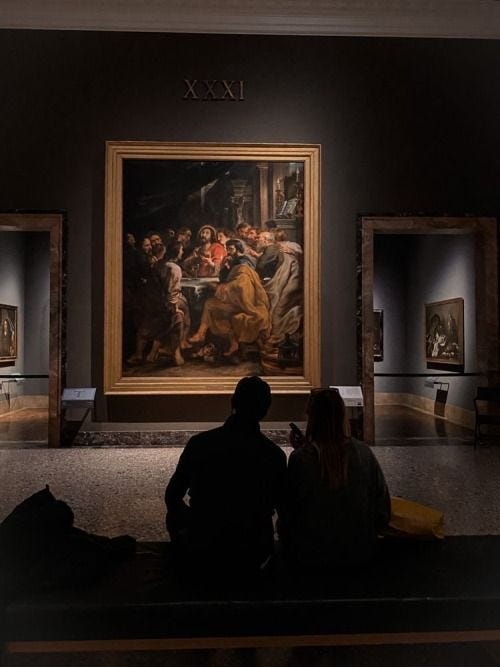

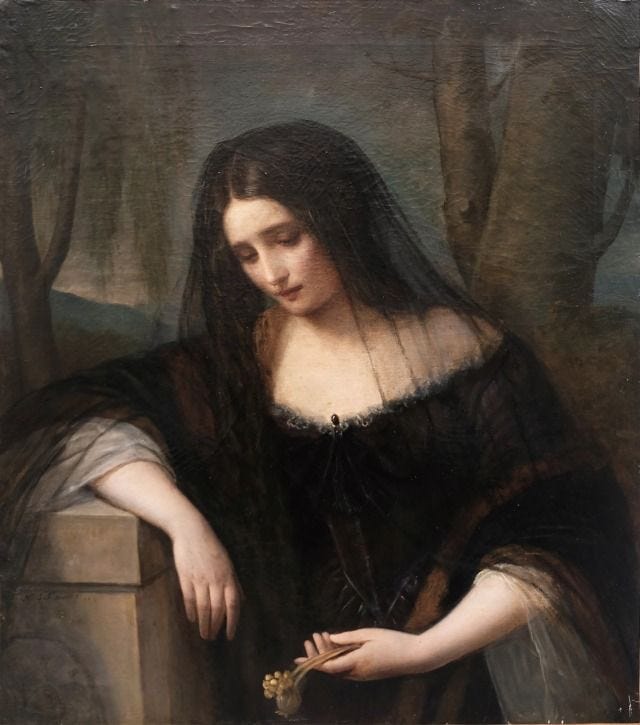
As a fellow aesthete, this piece spoke to me.
I wish the black and white thinking of the internet didn’t spill over into life because it’s difficult to love beautiful things without hearing the judgement that it’s frivolous or self indulgent.
I too believe that beauty or however we choose to define beauty is what makes this life, a life worth living.
Nothing makes me feel more alive than having a morning cup of tea in my mug, chips and all. Or painting the walls in my rental something other than white. Devoting the time to make playlists for every possible mood.
And you’re right, an aesthetic life has only made me appreciate every movement, every note of a song or a scent, every ingredient, color, material and so on.
I will add these books to my reading list, thank you for the suggestions
I feel so seen by this. No one in my life really understands why I yearn for aestheticism, and why it's what keeps me afloat in the madness. It's a haven I can return to and something that I often use to cleanse my mind. You put these feelings into words so beautifully!